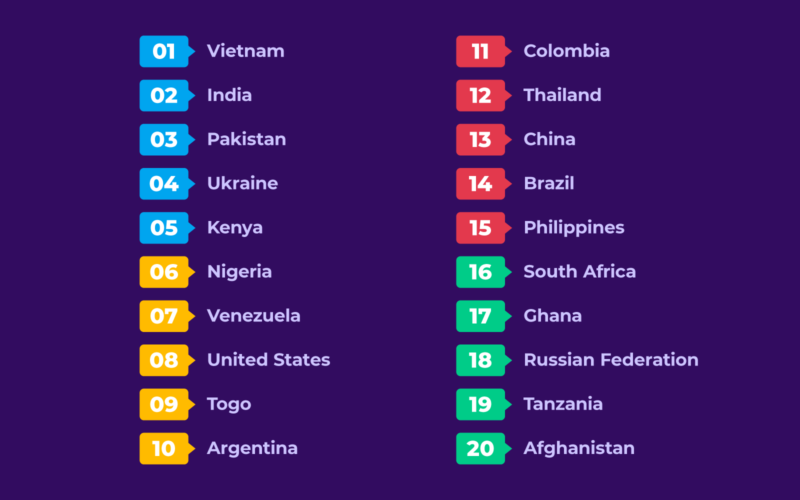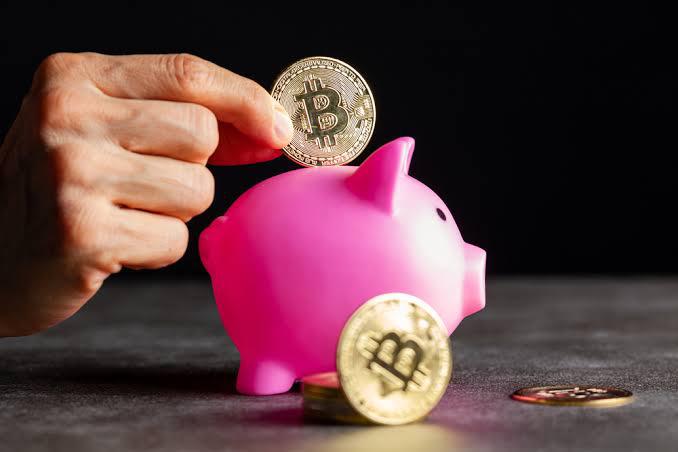Interestingly, El Salvador had a different plan. Instead of creating and launching its own digital currency, it settled on a decision that brought the country’s flag to the wall of history makers—El Salvador has finally adopted Bitcoin as a legal tender.
But why did El Salvador choose to make today’s leading crypto the country’s legal tender? What happened right after the momentous event? More importantly, which countries are likely to follow El Salvador’s bold move? Let’s find out.
El Salvador: The first country to use BTC as a national currency
It was on September 7, 2021, when El Salvador officially adopted Bitcoin as legal tender. This paved the way for BTC to be accepted as a means of exchange for goods and services in the country. According to a report from Reuters, El Salvador President Nayib Bukele saw Bitcoin’s potential to help Salvadorians living abroad to easily send money back home.
A promising financial future
In a Tweet, Bukele stated that “It [Bitcoin] will bring financial inclusion, investment, tourism, innovation, and economic development for our country.” While BTC is now a legal tender in the country, its use will still be optional for people. However, under the law, Bitcoin must be accepted by firms when offered as payment.
At the time of writing, El Salvador still stands as the first and only country to adopt Bitcoin as legal tender. While many countries have been exploring its potential, classifying BTC as a country’s legal tender means governments will need to give a sovereign backing or guarantee to the said cryptocurrency. Apart from that, governments must also be prepared for the potential effects of Bitcoin’s highly volatile nature.
By now, it’s safe to say that El Salvador is well prepared for that. On August 23, 2021, President Bukele mentioned that the country was installing 200 Bitcoin automated teller machines (ATMs) in preparation for adoption.
A rocky beginning that opened an opportunity for learning
While the country seemed to lay out everything to have a smooth transition to digital currency, El Salvador had a bumpy first day. The country’s bold move got off to a rough start when Chivo, the government-backed Bitcoin mobile app, suddenly became unavailable for a while on different platforms like Apple and Huawei. Over 1,000 people also held a protest in San Salvador against Bitcoin adoption.
On that day, there were also some dips in Bitcoin price, but President Bukele mentioned that “Like all innovations, El Salvador’s Bitcoin process has a learning curve.” He added in a Tweet, “Not everything will be achieved in a day or a month.”
Top countries that use Bitcoin the most
According to the Chainalysis 2021 Global Crypto Adoption Index, the adoption of crypto around the world reached a soaring growth rate of over 880% in the past 12 months. Interestingly, out of 154 countries that were ranked based on peer-to-peer (P2P) exchange trade volume, total crypto activity, and trading activity of non-professional users, these are the top 20 countries where crypto-related activities were most prevalent.

Source: blog.chainalysis.com
The 2021 Global Crypto Adoption Index (Preview)
This shows that while the United States leads the way in overall cryptocurrency friendliness, not all chunks of huge crypto activity come from America. The countries in the list can also be considered among the fastest crypto-adopting or emerging nations.
Four countries that could follow El Salvador’s footsteps in adopting Bitcoin
Earlier, we’ve seen reports that list down countries where Bitcoin or cryptocurrency transactions are shooting up. Now, let’s take a look at some countries that are likely to keep pace with El Salvador.
Brazil
This October 2021, Brazil’s Federal Deputy Aureo Riberio revealed that Brazilians could soon buy cars, houses, and even food from McDonald’s using BTC. Riberio introduced the Bitcoin bill 2.303/15 in the Brazilian House of Representatives and was approved by a special commission of the House on September 29.
As per Yahoo!’s report, Riberio said, “We want to separate the wheat from the chaff, create regulations so that you can trade, know where you’re buying and know who you’re dealing with.” Currently, Bitcoin remains unregulated in Brazil and its use for trading is discouraged.
Ukraine
A day after El Salvador’s Bitcoin adoption, the Ukrainian government voted almost unanimously to regulate and legalize cryptocurrency in its country. This is a bold move for Ukraine because, before this decision, cryptocurrencies were treated as illegal within the country’s borders. According to the Kyiv Post, “Ukraine plans to open the cryptocurrency market for businesses and investors by 2022.”
Ukrainians can buy and sell crypto, but the new law doesn’t make BTC and other digital currencies legal tender and the government keeps an eye on platforms and exchanges that deal in it. And unlike El Salvador, the country’s law on crypto doesn’t encourage the use of BTC as means of payment and doesn’t put Bitcoin at the same level as Ukraine’s official currency, the hryvnia.
Panama
Panama moved towards embracing cryptocurrencies on the same day that El Salvador made its historic decision to accept Bitcoin as legal tender. But to make Panama’s crypto embrace a little distinct from El Salvador, the country added Ethereum (ETH) to the list of cryptos it accepts.
Panama is looking to boost the use of BTC and ETH as a payment option in the country and the use of powerful blockchain technology in the public and financial sectors. The draft law states Bitcoin’s potential as an inflation hedge and high divisibility. However, unlike El Salvador, Panama didn’t require businesses to accept BTC and other cryptocurrencies.
Cuba
Cryptocurrencies like Bitcoin are now legally recognized for payments for commercial transactions in Cuba. On September 15, 2021, a few days after El Salvador’s Bitcoin adoption, the Banco Central de Cuba (BCC) approved Resolution 215 of 2021, recognizing digital currencies. While the BCC has already approved the use of Bitcoin and other cryptos in the country, it still reminds everyone of the potential risks of using cryptocurrencies, such as policy risks and financial stability threats.
One step at a time
El Salvador might be the smallest country in Central America, but its courage to adopt new things that can shape its financial future is immeasurable. This influence can be clearly seen with the countries that took their first step towards embracing digital currencies and soon enough, we might see more nations exploring the wonders Bitcoin can offer. Which countries do you think should be included in the list? Let us know down in the comments.
* The information we publish has been obtained from or is based on sources that we believe to be accurate and complete. Although reasonable care has been taken, we cannot guarantee the accuracy or completeness of any information we publish. Any opinions that we publish may be wrong and may change at any time. You should carry out your own independent verification of facts and data. Source: paxful.com
According to the Chainalysis 2021 Global Crypto Adoption Index, the adoption of crypto around the world reached a soaring growth rate of over 880% in the past 12 months. Events like this spurs the curiosity of what countries could adopt BTC following El-Salvador's bold move.







